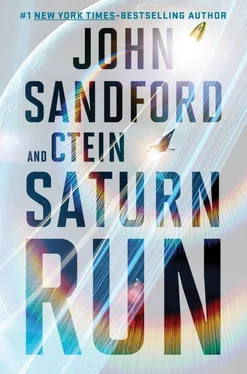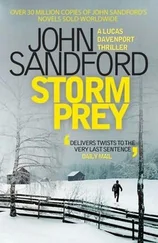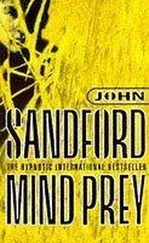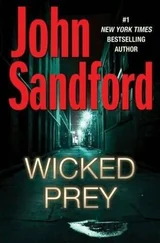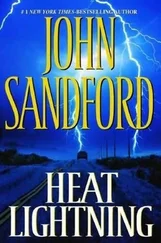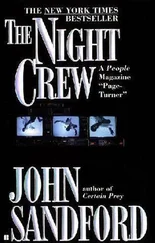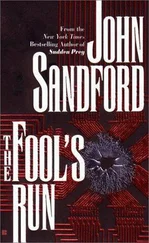Crow said, “Stop saying ‘we.’ It wasn’t us, it was the Chinese.”
Clover shrugged. “An irrelevant distinction, I suspect. As far as the AI is concerned, all us humans look alike. I imagine that millennia, or megayears ago, when the face-to-face contactees got into their planet-killing disagreements, they didn’t much concern themselves with exactly which members of the other species had committed the unforgivable offense. I think we came out of this pretty well—a little foul, a little harm. It only banned us for a hundred and forty-four years. We got off easy! That’s almost nothing when you consider the timescales of interstellar travel.”
“All right, John,” Fang-Castro said. She turned to Crow. “Mr. Crow, do you have an opinion on our current situation’s security? Does the AI or anything else in the depot pose a threat to us, in your opinion?”
Crow tapped his fingers together thoughtfully. “I’m more concerned with the Chinese. If they attempt further tampering with the depot, its security systems might be inclined to take countermeasures. I don’t think it would distinguish between them and us. As John pointed out, its policies operate species-wide.
“And I’d point out, they banned us—they didn’t tell us to give anything back. And as far as we know, we have it all. And as far as we know, the Chinese don’t have much. They didn’t have time link to the I/O and we got all the available QSUs. That strikes me as a pretty unstable situation.”
Clover said, “About an alien threat: if there is one, we have no idea what form it would take.”
Barnes added, “We never saw any visible weapons, but there’s so many things a facility like this might be able to do. Some kind of super cybervirus trashing our computers? A swarm of bees chasing us down—we have no idea what their capabilities are. Nanobots, like the ones on the surface of the depot’s primary, gobbling up the ship from under us?”
Clover said, “You guys work too hard at your nightmares. Blowguns would be a lot easier.”
Crow: “Blowguns?”
“Yeah, these guys are making anti-iron by the ton, remember? So a little magnetic peashooter firing BBs at us, that’s what I’m thinking. Except each BB is like getting hit with…” He looked at Hannegan. “Well, I don’t know. You tell me.”
Hannegan punched a few numbers into his slate and volunteered, “Something like a kiloton of TNT?”
Clover laughed: “That’s the ticket! Beats poison blow darts all to hell. And it’s not like they’d have any shortage of BBs. Oh yeah, the AI could’ve slammed us good if it wanted to. But it hasn’t, so it probably won’t.”
Crow said, “You’ve been leaning on that theory pretty hard, the ‘they haven’t, so they won’t’ theory.”
Clover shrugged: “It’s what I got.”
Zhang Ming-Hoa was having a terrible day and it wasn’t going to get better anytime soon. Communications with Beijing had been running nonstop since the accident, on an excruciatingly slow cycle. Beijing would ask a question or make a suggestion. He’d get it more than an hour after they transmitted it. He’d reply. They’d come back with a response two and a half hours later, unless they decided to think it over, in which case later still. And on and on and on.
The explosion had occurred while the alien constellation was on the far side of Saturn from Earth, so the first Beijing had known of the disaster was a short message Zhang had sent back after the ship had come off of emergency status. Their reply was terse: Is the Celestial Odyssey operational? No recriminations, no expressions of concern, no queries about the crew. Just, are you operational?
He didn’t know if he should take that as a good sign or a bad one. It didn’t much matter. The mission was in shambles. It had fallen apart, failed to achieve every one of its objectives.
No, that was wrong. This wasn’t some anonymous “mistakes were made” scenario, not even some third-party “the captain is responsible for a ship” rhetoric.
He had done this. He had caused this. The failures, the losses, they were due to his mistakes. His plans, his strategies, his errors in judgment had cost them. Half the crew vaporized in an antimatter-driven fireball. The shuttle, vaporized. All but nine of their space suits, vaporized.
Were they operational?
Technically, yes. Was this survivable? That was a whole different question, and the one foremost in his mind. His primary obligation was to get the remainder of his crew home alive. He wasn’t sure that was possible; they might already be dead men walking.
He felt most guilty over the death of Duan Me. He’d disliked the political officer, not as a human being, but for what she did. He’d idly wished her ill.
Now a completely illogical part of his mind felt culpable in her death. He knew it was ridiculous; the universe did not bend to his will to determine who lived and died. She would have been no less dead if he had loved her like his mother. He knew that. He still couldn’t throw off that extra load of unreasonable guilt piled on top of the immense load of entirely justifiable guilt he carried.
Somehow he had to push all that aside and manage the welfare of the rest of his crew. The explosion hadn’t killed them, not directly, anyway. The ship’s surge protectors and electromagnetic pulse firewalls were there to protect it from a major solar event. No one had tested it as a defense against a nearby nuclear detonation, but it had worked well enough. All the major circuits and power subsystems were intact. Some lesser stuff had been fried. The ship was functional—what was left of it after the aerobraking maneuvers, the only catastrophe that wasn’t entirely his fault.
But they’d been counting on what was left of the ship to operate at a hundred percent of capability. That was no longer possible. Some of the damaged subsystems were certainly not repairable. How many, they didn’t know yet. They might not have an exact count of how many they’d lost until after the repair attempts failed, but there was no doubt that the number was considerably larger than zero.
Those repairs would be slowed for weeks or months, by the deaths of so many people. The loss of all the scientists, tragic as it was in human terms, did not directly affect the running of the ship. The loss of pilots, maintenance technicians, and engineers did.
Zhang had been prudent enough not to send over anyone absolutely vital to ship’s operations, but even so they were now operating with barely better than a skeleton crew. They’d hoped that they might repair one of the badly damaged external tanks with the carbon fiber and printer donated by the Americans. Now they no longer had the personnel to do that. The ship’s status would not be clear for some time, but it was somewhere between “bad” and “disastrous.”
That wasn’t even considering what the aliens might do. Hundreds of the autonomous spacecraft, the worker ants, had positioned themselves between the Celestial Odyssey and the alien constellation. The ship’s instruments had picked up very faint positron signatures. Regardless of whatever the aliens used them for, each of those ants was a flying nuclear weapon.
Zhang ordered the Celestial Odyssey to back off, very slowly, very cautiously. The maneuvering engines drove the slightest of orbital changes, increasing the gap between them and the aliens by less than a meter a second. It was nothing that should alarm them or trigger an attack, but it had been enough to substantially increase the distance between the ship and the ants since the explosion.
The flying bombs hadn’t moved forward. They’d stayed where they were, letting the Celestial Odyssey pull away. That was good news… unless the aliens were waiting for the ship to be safely far from the facilities before they vaporized it with a score of antimatter detonations. Who knew?
Читать дальше
